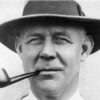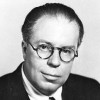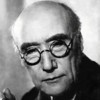Quotations about:
success
Note not all quotations have been tagged, so Search may find additional quotes on this topic.
Prosperity has damn’d more Souls, than all the Devils together.
Thomas Fuller (1654-1734) English physician, preacher, aphorist, writer
Gnomologia: Adages and Proverbs, #3963 (1732)
(Source)
One lesson you better learn if you want to be in politics is that you never go out on a golf course and beat the President.
Lyndon B. Johnson (1908-1973) American politician, educator, US President (1963-69)
Comment to Larry O’Brien III (1964)
(Source)
On the occasion of O'Brien beating Johnson by one stroke on a nine-hole golf outing. Noted by his father in his book, No Final Victories: A Life in Politics, ch. 8 "LBJ" (1974).
See Gracian.
Promise little, and do much; so shalt thou have Thanks.
Thomas Fuller (1654-1734) English physician, preacher, aphorist, writer
Introductio ad Prudentiam, Vol. 1, # 111 (1725)
(Source)
Now that I have grown old, I realize that for most of us it is not enough to have achieved personal success. One’s best friend must also have failed.
W. Somerset Maugham (1874-1965) English novelist and playwright [William Somerset Maugham]
Comment (1959)
A comment recorded by a journalist on his 85th birthday, quoted in Richard Cordell, Somerset Maugham: A Biographical and Critical Study (1961). Cordell mentions the influence of La Rochefoucauld on the phrase, and it is therefore often attributed to La Rochefoucauld, though it is not in his Maxims.
Also attributed to Gore Vidal, Iris Murdoch, Genghis Khan.
Pithier (and more common) paraphrases:
More discussion of this quotation here: It Is Not Enough to Succeed; One’s Best Friend Must Fail – Quote Investigator®.
- "It is not enough to succeed; one’s best friend must fail."
- "It is not enough to succeed; one’s friends must fail."
- "It is not enough to succeed; others must fail."
- "It’s not enough that I should succeed, others should fail."
- "It is not sufficient that I succeed –- all others must fail."
No pain, no palm;
No thorns, no throne;
No gall, no glory;
No cross, no crown.William Penn (1644-1718) English writer, philosopher, politician, statesman
“No Cross, No Crown” (1682)
Originally written while a prisoner in the Tower of London (1668-69). See Quarles (1821).
A man’s worst difficulties begin when he is able to do as he likes. So long as a man is struggling with obstacles he has an excuse for failure or shortcoming; but when fortune removes them all and gives him the power of doing as he thinks best, then comes the time of trial. There is but one right, and the possibilities of wrong are infinite.
T. H. Huxley (1825-1895) English biologist [Thomas Henry Huxley]
“Address on University Education,” opening ceremonies of Johns Hopkins University, Baltimore (12 Sep 1876)
(Source)
Try not to become a man of success but rather try to become a man of value.
Albert Einstein (1879-1955) German-American physicist
Memoirs of William Miller, quoted in Life (2 May 1955)
(Source)
I believe four ingredients are necessary for happiness: health, warm personal relations, sufficient means to keep you from want, and successful work.
Bertrand Russell (1872-1970) English mathematician and philosopher
“Redbook Dialogue,” interview by Tommy Robbins, Redbook (1964-09)
(Source)
Reprinted in Russell Society News, #37 (1983-02), p. 25.
The important thing in life is not the victory but the contest; the essential thing is not to have won but to have fought well.
[L’important dans la vie ce n’est point le triomphe, mais le combat, l’essentiel ce n’est pas d’avoir vaincu mais de s’être bien battu.]
Pierre Frédy, Baron de Coubertin (1863-1937) French pedagogue, historian, founder of the International Olympic Committee
Olympic Creed, Speech, Olympic Games, London (24 Jul 1908)
Alt. trans: "The important thing in life is not the triumph but the struggle, the essential thing is not to have conquered but to have fought well."
Original phrasing by de Coubertin: "The importance of these Olympiads is not so much to win as to take part."
De Coubertin was drawing from a sermon by Bp. Ethelbert Talbot at St Paul's Cathedral, London (19 Jul 1908): "We have just been contemplating the great Olympic Games. What does it mean? It means that young men of robust physical life have come from all parts of the world. It does mean, I think, as someone has said, that this era of internationalism as seen in the Stadium has an element of danger. Of course, it is very true, as he says, that each athlete strives not only for the sake of sport, but for the sake of his country. Thus a new rivalry is invented. If England be beaten on the river, or America outdistanced on the racing path, or that American has lost the strength which she once possessed. Well, what of it? The only safety after all lies in the lesson of the real Olympia -- that the Games themselves are better than the race and the prize. St. Paul tells us how insignificant is the prize, Our prize is not corruptible, but incorruptible, and though only one may wear the laurel wreath, all may share the equal joy of the contest. All encouragement, therefore, be given to the exhilarating -- I might also say soul-saving -- interest that comes in active and fair and clean athletic sports."
Living well is the best revenge.
George Herbert (1593-1633) Welsh priest, orator, poet.
Jacula Prudentum, or Outlandish Proverbs, Sentences, &c. (compiler), # 524 (1640 ed.)
(Source)
Perhaps a variant of John Lyly (1579): "The greatest harm that you can do unto the envious, is to do well."
For when the One Great Scorer comes to mark against your name,
He writes — not that you won or lost — but how you played the Game.
Success, recognition, and conformity are the bywords of the modern world where everyone seems to crave the anesthetizing security of being identified with the majority.
Martin Luther King, Jr. (1929-1968) American clergyman, civil rights leader, social activist, preacher
Strength to Love, ch. 2 “Transformed Non-Conformist” (1963)
(Source)
You had better be the emperor of one loving and tender heart, and she the empress of yours, than to be king of the world. The man who has really won the love of one good woman in this world, I do not care if he dies in the ditch a beggar, his life has been a success.
Robert Green Ingersoll (1833-1899) American lawyer, agnostic, orator
“The Liberty of Man, Woman, and Child” (1877)
(Source)
We don’t have to be “successful,” only valuable. We don’t have to make money, only a difference, and particularly in the lives society counts least and puts last.
William Sloane Coffin, Jr. (1924-2006) American minister, social activist
Credo, “Faith, Hope, Love” (2004)
(Source)
It is not always by plugging away at a difficulty and sticking at it that one overcomes it; but, rather, often by working on the one next to it. Certain people and certain things require to be approached on an angle.
If you would escape moral and physical assassination, do nothing, say nothing, be nothing — court obscurity, for only in oblivion does safety lie.
Elbert Hubbard (1856-1915) American writer, businessman, philosopher
Little Journeys to the Homes of American Statemen, “William H. Seward” (1916)
(Source)
Variants show up elsewhere in Hubbard's writings and and his quote epigrams.Often misattributed to Aristotle.
- To escape criticism -- do nothing, say nothing, be nothing.
- To avoid unkind criticism: do nothing, say nothing, be nothing.
- There is only one way to avoid criticism: do nothing, say nothing and be nothing.
A Man who is a Master of Patience is Master of everything else.
George Savile, Marquis of Halifax (1633-1695) English politician and essayist
“Patience,” Political, Moral, and Miscellaneous Thoughts and Reflections (1750)
(Source)
Let everyone, then, do something, according to the measure of his capacities. To have no regular work, no set sphere of activity — what a miserable thing it is! How often long travels undertaken for pleasure make a man downright unhappy; because the absence of anything that can be called occupation forces him, as it were, out of his right element. Effort, struggles with difficulties! that is as natural to a man as grubbing in the ground is to a mole. To have all his wants satisfied is something intolerable — the feeling of stagnation which comes from pleasures that last too long. To overcome difficulties is to experience the full delight of existence.
[Inzwischen treibe jeder etwas, nach Maßgabe seiner Fähigkeiten. Denn wie nachteilig der Mangel an planmäßiger Tätigkeit, an irgend einer Arbeit, auf uns wirke, merkt man auf langen Vergnügungsreisen, als wo man, dann und wann, sich recht unglücklich fühlt; weil man, ohne eigentliche Beschäftigung, gleichsam aus seinem natürlichen Elemente gerissen ist. Sich zu mühen und mit dem Widerstande zu kämpfen ist dem Menschen Bedürfnis, wie dem Maulwurf das Graben. Der Stillstand, den die Allgenugsamkeit eines bleibenden Genusses herbeiführte, wäre ihm unerträglich. Hindernisse überwinden ist der Vollgenuß seines Daseins.]
Arthur Schopenhauer (1788-1860) German philosopher
Parerga and Paralipomena, Vol. 1, “Aphorisms on the Wisdom of Life [Aphorismen zur Lebensweisheit],” ch. 5 “Counsels and Maxims [Paränesen und Maximen],” § 2.17 (1851) [tr. Saunders (1890)]
(Source)
(Source (German)). Alternate translation:
Nevertheless, everyone should do something according to the measure of his abilities. For on long pleasure-trips we see how pernicious is the effect on us of not having any systematic activity or work. On such trips we feel positively unhappy because we are without any proper occupation and are, so to speak, torn from our natural element. Effort, trouble, and struggle with opposition are as necessary to man as grubbing in the ground is to a mole. The stagnation that results from being wholly contented with a lasting pleasure would be for him intolerable. The full pleasure of his existence is in overcoming obstacles.
[tr. Payne (1974)]
For there is no comparison between that which we may lose by not trying and by not succeeding; since by not trying we throw away the chance of an immense good; by not succeeding we only incur the loss of a little human labour. But as it is, it appears to me from what has been said, and also from what has been left unsaid, that there is hope enough and to spare, not only to make a bold man try, but also to make a sober-minded and wise man believe.
[Non enim res pari periculo non tentatur, et no succedit; cum in illo ingentis boni, in hoc exiguae humanae operae, jactura vertatur. Verum ex dictis, atque etiam ex non dictis, visum est nobis spei abunde subesse, non tantum homini strenuo ad experiendum, sed etiam prudenti et sobrio ad credendum.]
Francis Bacon (1561-1626) English philosopher, scientist, author, statesman
Instauratio Magna, Part 2 “Novum Organum” [The New Organon],” Book 1, Aphorism # 114 (1620) [tr. Spedding (1858)]
(Source)
(Source (Latin)). Alternate translations:
For the risk attending want of success is not to be compared with that of neglecting the attempt; the former is attended with the loss of a little human labour, the latter with that of an immense benefit. For these and other reasons, it appears to us that there is abundant ground to hope, and to induce not only those who are sanguine to make experiment, but even those who are cautious and sober to give their assent.
[tr. Wood (1831)]
For it is not a case where there is an equal risk in not trying and not succeeding; since in the former instance we risk a huge advantage; in the latter a little human labour is thrown away. But from what has been said, and also from what has not been said, it seems to us that there is abundant ground of hope, not only to justify a stout-hearted man in trying, but even a prodent and sober man in believing.
[tr. Johnson (1859)]
For the danger of not trying and the danger of not succeeding are not equal, since the former risks the loss of great good, the latter of a little human effort. But from what we have said and from other things which we have not said, it has seemed to us that we have abundance of hope, whether we are men who press forward to meet new experiences, or whether we are careful and slow to believe.
[tr. Silverthorne (2000) "The Great Renewal"]
The loss that may come from not trying is much greater than what may come from trying and not succeeding: by not trying we throw away the chance of an immense good; by not succeeding we only incur the loss of a little human labour. But from what I have said (and from some things that I haven’t said) it seems to me that there is more than enough hope not only to get a vigorous man to try but also to make a sober-minded and wise man believe that he will succeed.
[tr. Bennett (2017)]
To know a man, observe how he wins his object, rather than how he loses it; for when we fail, our pride supports us; when we succeed, it betrays us.
Charles Caleb "C. C." Colton (1780-1832) English cleric, writer, aphorist
Lacon: Or, Many Things in Few Words, Vol. 1, § 265 (1820)
(Source)
I have learned that success is to be measured not so much by the position that one has reached in life as by the obstacles which he has overcome while trying to succeed.
It is only a step from victory to disaster. My experience is that, in a crisis, some detail always decides the issue.
Napoleon Bonaparte (1769-1821) French emperor, military leader
Letter to Tallyrand (7 Oct 1797)
(Source)
Napoleon's Letters [tr. J. M. Thompson (1934)]
Those blush to lose a conquering game,
And fain would peril life for fame:
These bring success their zeal to fan;
They can because they think they can.[Hi proprium decus et partum indignantur honorem
ni teneant, vitamque volunt pro laude pacisci;
hos successus alit: possunt, quia posse videntur.]Virgil (70-19 BC) Roman poet [b. Publius Vergilius Maro; also Vergil]
The Aeneid [Ænē̆is], Book 5, l. 229ff (5.229-231) (29-19 BC) [tr. Conington (1866)]
(Source)
Of the crews of the two remaining ships racing at the funeral games of Anchises: Cloanthus' Scylla which is closing on the finish line; Mnestheus' Pristis which has come up from last place and may yet take the lead. (Cloanthus wins the race by offering a sacrifice to the sea gods.)
(Source (Latin)). Alternate translations:
These their new glory, honours got despise,
Unless they keep it, and to gaine the prize
Would sell their lives; success feeds them; they may
Because they think they can obtain the day.
[tr. Ogilby (1649)]
Resolv'd to hold their own, they mend their pace,
All obstinate to die, or gain the race.
Rais'd with success, the Dolphin swiftly ran;
For they can conquer, who believe they can.
[tr. Dryden (1697)]
These are fired with indignation, lest they should lose their possession of glory and honor they have won; and they are willing to barter life for renown. Those success cherishes; they are able because they seem to be able.
[tr. Davidson/Buckley (1854)]
These scorn to lose the honour that is their own, the glory in their grasp, and would sell life for renown; to these success lends life; power comes with belief in it.
[tr. Mackail (1885)]
These, thinking shame of letting fall their hardly-gotten gain
Of glory's meed, to buy the praise with very life are fain;
Those, fed on good-hap, all things may, because they deem they may
[tr. Morris (1900), l. 228ff]
These scorn to lose their vantage, stung with shame,
And life is wagered willingly for fame.
Success inspires the hindmost; as they dare,
They do; the thought of winning wins the game.
[tr. Taylor (1907), st. 31, l. 274ff]
The leaders now with eager souls would scorn
to lose their glory, and faint-hearted fail
to grasp a prize half-won, but fain would buy
honor with life itself; the followers too
are flushed with proud success, and feel them strong
because their strength is proven.
[tr. Williams (1910)]
These think it shame not to keep the honour that is theirs, the glory they have won, and would barter life for fame: those success heartens; strong are they, for strong they deem themselves.
[tr. Fairclough (1916)]
On the Scylla
They would give their lives to hold their place, they have won it,
The glory and honor are theirs already, almost;
And Mnestheus’ men take courage from their nearness;
They can because they think they can.
[tr. Humphries (1951)]
One crew was compelled by the shame of losing a prize they had all but
Gained for their own, and would give their lives for its glory; the other
Was fired by success -- they could do it because they believed they could do it.
[tr. Day-Lewis (1952)]
Cloanthus' crewmen
now think it a disgrace to fail to keep
the fame and honor they themselves have won,
and they would give their very lives for glory;
but Menestheus' men are strengthened by success,
they have the power because they feel they have it.
[tr. Mandelbaum (1971), l. 301ff]
One crew fought off the shame of losing honor
Theirs already, glory won; they'd give
Their lives for fame; but luck empowered the others
Who felt that they could do it, and so could.
[tr. Fitzgerald (1981), l. 294ff]
Cloanthus and his men on the Scylla saw the honour as theirs by right. They had already won the victory and had no intention of giving it up. They would rather have lost their lives than lose the glory. Mnestheus and his men on the Pristis were feeding on success. They could win because they thought they could.
[tr. West (1990)]
The former crew are unhappy lest they fail to keep
the honour that is theirs and the glory already
in their possession, and would sell their lives for fame.
the latter feed on success: they can because they think they can.
[tr. Kline (2002)]
One crew, stung by the shame of losing victory now
with glory won, would trade their lives for fame.
But Mnestheus and his crew, fired by their success,
can just about win the day because they think they can.
[tr. Fagles (2006), l. 256ff]
One crew would hate to lose the glory of an honor all but one. They'd trade their lives for victory. The others were encouraged by success. Belief in victory spurred them on.
[tr. Bartsch (2021)]
I’d like to have money. And I’d like to be a good writer. These two can come together, and I hope they will, but if that’s too adorable, I’d rather have the money.
I cannot ask of heaven success, even for my country, in a cause where she should be in the wrong. Fiat justitia, pereat coelum. My toast would be, may our country be always successful, but whether successful or otherwise, always right.
John Quincy Adams (1767-1848) US President (1825-29)
Letter to John Adams (1 Aug 1816)
In response to Stephen Decatur's quote (and subsequent popular catch phrase), "Our Country! In her intercourse with foreign nations may she always be in the right, but our country, right or wrong."
The Latin translates as "Let justice be done though Heaven should fall."
History has demonstrated that the most notable winners usually encountered heartbreaking obstacles before they triumphed. They won because they refused to become discouraged by their defeats.
Bertie Charles (B. C.) Forbes (1880-1954) American publisher
Forbes, Issue No. 1 (Sep 1917)
(Source)
We must believe in luck. For how else can we explain the success of those we don’t like?
My mother drew a distinction between achievement and success. She said that achievement is the knowledge that you have studied and worked hard and done the best that is in you. Success is being praised by others, and that’s nice too, but not as important or satisfying. Always aim for achievement and forget about the success.
PORTIUS: ‘Tis not in mortals to command success,
But we’ll do more, Sempronius; we’ll deserve it.Joseph Addison (1672-1719) English essayist, poet, statesman
Cato, Act 1, sc. 2, l. 43ff (1713)
(Source)
This passage was widely known to America's Founders; John Adams paraphrases it in a letter to his wife Abigail (1776-02-18), and George Washington in letters to Nicholas Cooke (1775-10-29) and, most famously, Benedict Arnold (1775-12-05).
The baby rises to its feet, takes a step, is overcome with triumph and joy — and falls flat on its face. It is a pattern for all that is to come! But learn from the bewildered baby. Lurch to your feet again. You’ll make the sofa in the end.
Pamela Brown (1924-1989) British writer, actress, television producer
The Swish of the Curtain (1938)







































